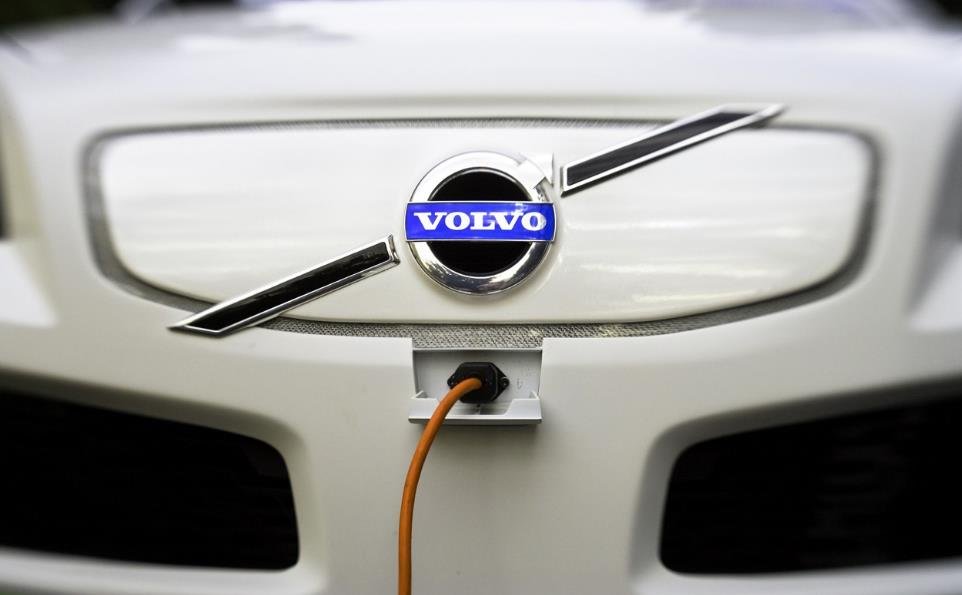Starbucks, the world’s largest coffee chain, has announced a pilot program to install electric vehicle (EV) charging stations at some of its U.S. stores in partnership with Volvo Cars and ChargePoint, a leading EV charging network. The initiative is part of Starbucks’ commitment to sustainability and decarbonization, as well as Volvo’s goal to become a fully electric car company by 2030.
The pilot program will see up to 60 Volvo-branded, ChargePoint DC fast chargers installed at up to 15 Starbucks locations along a 1,350-mile route from the Denver area to the coffee company’s Seattle headquarters. The chargers will be able to bring the battery of a Volvo C40 Recharge, for example, from 20 percent to 90 percent in about 40 minutes. While their cars are recharging outside, drivers and their passengers can relax inside with their favorite Starbucks beverage.

The charging stations will be open to all EV owners with a ChargePoint account, but drivers of Volvo cars will get the added benefit of having access to these stations at no charge or at preferential rates. Drivers of Volvo Recharge models with Google embedded can also use the ChargePoint app integrated into their vehicle’s in-dash system, while other drivers can use the ChargePoint smartphone app, to find and access the charging stations at participating Starbucks locations.
The pilot program is expected to begin this summer and be completed by the end of 2023, giving EV drivers traveling between the Rocky Mountains and the Pacific Northwest a string of familiar, reliable, clean and safe places to recharge themselves and their battery-powered vehicles.
A shared vision for a sustainable future
The collaboration between Starbucks and Volvo is driven by a shared vision for a sustainable future, as both companies have set ambitious goals to reduce their environmental impact and carbon footprint.
Starbucks has pledged to become a resource-positive company, meaning that it will give more than it takes from the planet. The company has also set targets to reduce carbon emissions, water use and waste by 50 percent by 2030. As part of its sustainability efforts, Starbucks has invested in renewable energy projects, green building design, reusable packaging, plant-based menu options and community engagement.
Volvo Cars has also committed to becoming a leader in the fast-growing premium electric car market, and plans to phase out all cars with an internal combustion engine by 2030, including hybrids. The company has also set a goal to reduce its lifecycle carbon footprint per car by 40 percent by 2025, and to become climate neutral by 2040. Volvo Cars has also implemented measures to improve energy efficiency, use more recycled materials, and support responsible sourcing and human rights.
A potential model for scaling up EV charging infrastructure
The pilot program between Starbucks and Volvo is also a research project to understand the usage and potential scalability of EV charging infrastructure at Starbucks stores nationwide. The companies will monitor the stations closely and assess the data collected to determine the feasibility and benefits of expanding the program to other locations and regions.
The pilot program could serve as a potential model for scaling up EV charging infrastructure in the U.S., where the availability and accessibility of charging stations is seen as a major barrier to EV adoption. According to the U.S. Department of Energy, there are about 43,000 public charging outlets in the country, compared to about 150,000 gas stations. The Biden administration has proposed to invest $15 billion to build 500,000 EV charging stations across the country by 2030, as part of its infrastructure plan.
The pilot program could also help boost the sales and awareness of EVs, especially among Starbucks customers, who are typically affluent, urban and environmentally conscious. According to a survey by Cox Automotive, 63 percent of Starbucks customers said they would consider buying an EV in the next two years, compared to 48 percent of the general population.
